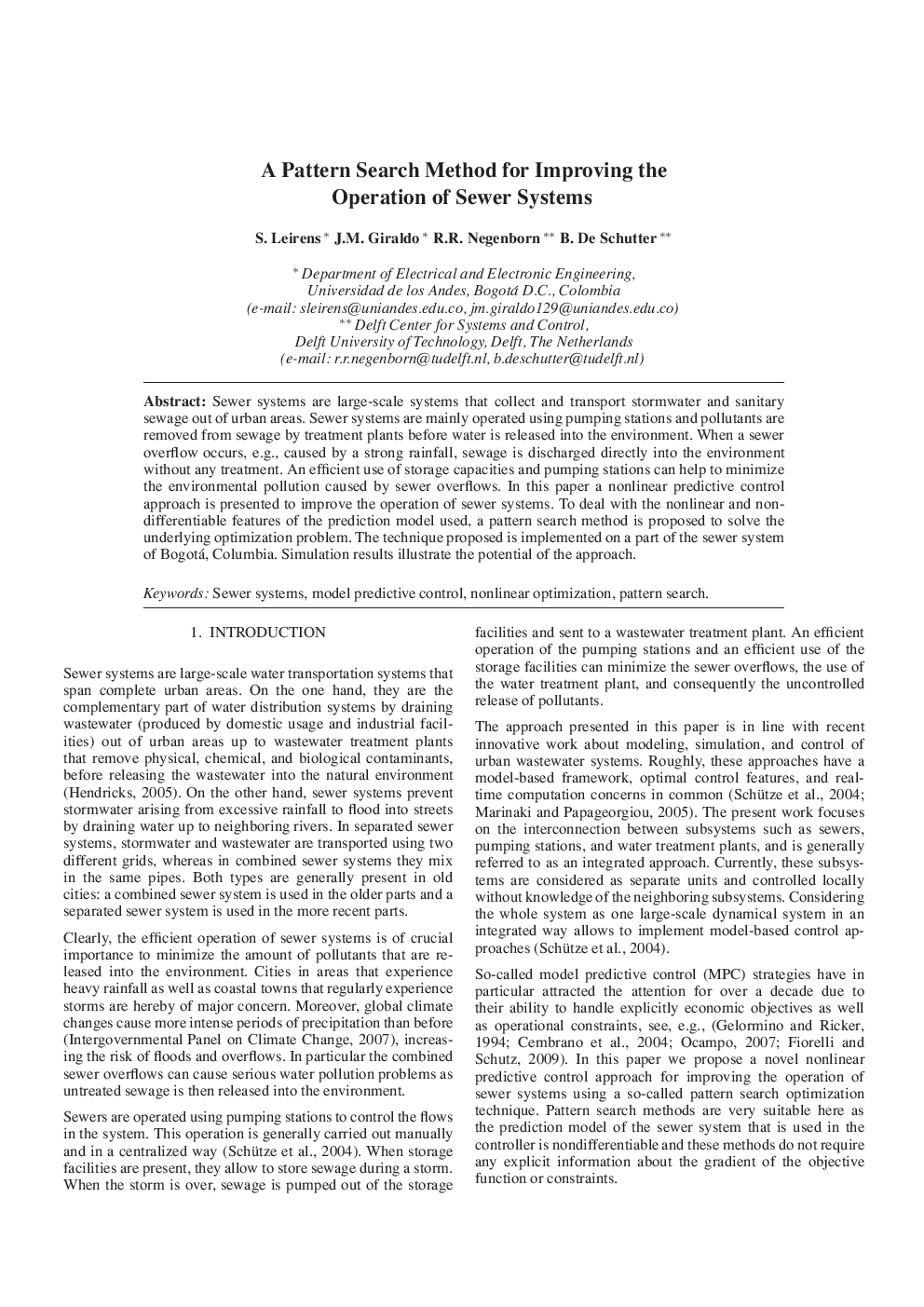| Article ID | Journal | Published Year | Pages | File Type |
|---|---|---|---|---|
| 719665 | IFAC Proceedings Volumes | 2010 | 6 Pages |
Sewer systems are large-scale systems that collect and transport stormwater and sanitary sewage out of urban areas. Sewer systems are mainly operated using pumping stations and pollutants are removed from sewage by treatment plants before water is released into the environment. When a sewer overflow occurs, e.g., caused by a strong rainfall, sewage is discharged directly into the environment without any treatment. An efficient use of storage capacities and pumping stations can help to minimize the environmental pollution caused by sewer overflows. In this paper a nonlinear predictive control approach is presented to improve the operation of sewer systems. To deal with the nonlinear and non-differentiable features of the prediction model used, a pattern search method is proposed to solve the underlying optimization problem. The technique proposed is implemented on a part of the sewer system of Bogotá, Columbia. Simulation results illustrate the potential of the approach.
